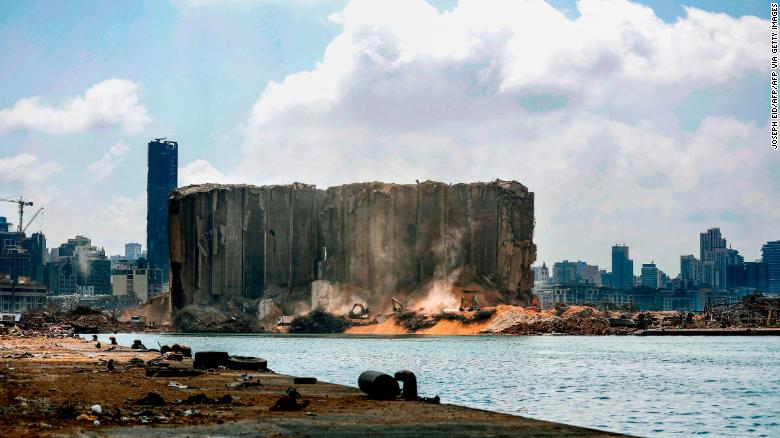Lebanese President Michel Aoun has said it would be "impossible" for him to resign following calls for him to leave office over the deadly explosion in Beirut.
His comments came after the Lebanese government stepped down on Monday night in the wake of the blast that killed more than 170 people and injured more than 6,000 others.
Speaking about the possibility of his resignation, Aoun said in a recorded interview with French network BFM Saturday: "This is impossible, because this would lead to a power vacuum. The government resigned. Let's imagine that I was to resign. Who would ensure the continuity of power?
"If I were to resign, one would need to organize elections right away. But the current situation in the country does not allow the organizations of such elections," he added.
When asked about the investigation into the explosion, Aoun cited its complexity, saying it "won't be able to be finished very quickly as we wished it to."
The President added that he has asked the judicial council to supervise the probe and called for an "independent magistrate" to investigate.
The massive blast that hit Lebanon's capital on August 4 damaged much of the city and sparked violent protests against the authorities.
Less than a week after the explosion, Lebanon's Prime Minister Hassan Diab described it as a "disaster beyond measure" during an address in which he announced his resignation and that of his government.
In his speech, Diab took aim at Lebanon's ruling political class for fostering what he called "an apparatus of corruption bigger than the state" and said his government had chosen "to stand with the people" by stepping down.
While suggesting that members of his Cabinet had "fought valiantly and with dignity," he added: "Between us and change is big powerful barrier."
Lebanon had already been struggling economically in the months before the blast, with its currency losing approximately 70% of its value since last October and the World Bank forecasting that half of its population would become poor in 2020.
Last weekend, the international community pledged around $300 million in aid to Lebanon during a donors' conference hosted by French President Emmanuel Macron and attended by US President Donald Trump and other heads of state.
source: CNN

